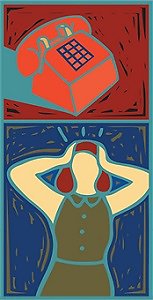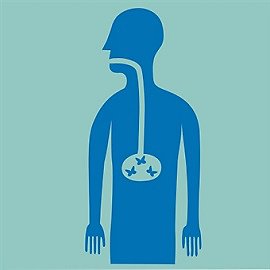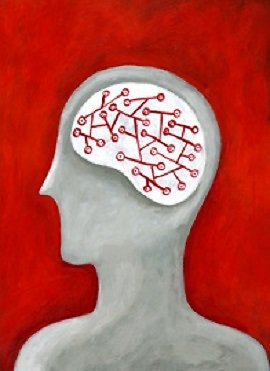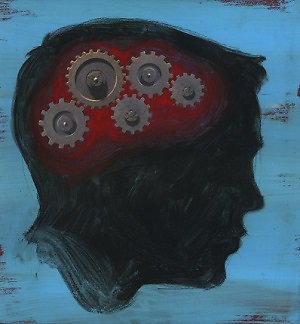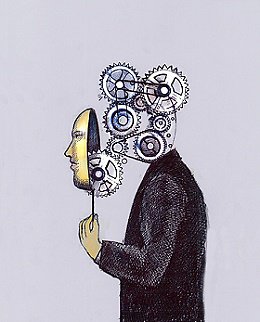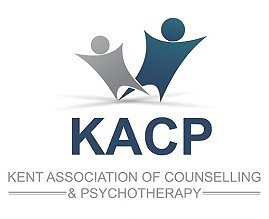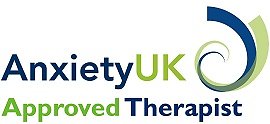Health Anxiety
Anyone can develop health anxiety from those who are healthy to those who already have a diagnosed condition. We may worry about having a disease in the present or may develop one in the future. Instead of worrying about our own health we may become anxious about a child or loved one. We may worry about any disease from cancer heart disease to mental illness. We may also change the condition that consumes us with anxiety.
Health anxiety can be described as a problem when:
- It is excessive, dominating and interfering with your life
- It is out of proportion to the realistic likelihood of having a serious medical problem
- It is persistent despite negative test results and reassurance form the medical profession
- It leads you to frequently check your body for symptoms
- You frequently seek reassurance from your doctors and others and that reassurance does not last long
- It leads you to avoid all health-related issues or others who are ill
- It is regularly causing you significant distress.
- Your worries have lasted six months or more
Research demonstrates that the quality of life is lower in those who have a medical condition and also experience health anxiety compared with those who have a medical condition but do not have high health anxiety.
Anxiety of any sort will affect:- The way we feel
- The way we think
- The way our body works
- The way we behave
Negative consequences of health anxiety
You may have begun to behave as though you are an invalid and stop the exercise as you fear it will bring on a health condition. You may withdraw from socialising for fear of catching a disease or to avoid any conversations about the illness. You may find that family members join you in your anxiety, or they may become frustrated with you causing everyone to feel distressed. A considerable amount of time may be taken up searching for signs of potential disease and attending medical appointments. You may take time off work and have difficulty focusing and concentrating on tasks. You may stop doing things you used to enjoy or give you a sense of satisfaction. You may find trouble trying to gain a sense of pleasure in any activities because your health is always on your mind
Am I suffering from health anxiety? - Do you spend a disproportionate amount of time worrying about your health?
- When you notice a bodily change or sensation do you focus excessively on it and immediately think that something serious is going on?
- Do you believe that doctors will get it wrong or miss something?
- Do you think that having an illness will result in certain disability or death?
- Do you underestimate your ability to cope with a serious medical diagnosis?
- Are you constantly on guard checking for any changes in your health?
- Do you imagine yourself being seriously ill?
- Do you frequently consult your GP with a variety of perhaps ill-defined symptoms even though you have already received reassurance?
- Are you constantly asking for reassurance from others?
- Do you spend a large proportion of your time squeezing, prodding and poking your body monitoring for physical symptoms of the disease?
- Are you troubled by the need to keep checking the internet/media searching for articles on disease?
- Avoidance of anything connected with illness?
- Is worry interfering with your capacity to live your life?
If you answer yes to six or more questions and they are persistent, then you may have a problem with health anxiety
What causes health anxiety?
Going through a stressful life period
Genetic vulnerability
Early life experiences: If one or both of your primary care givers struggled with any type of anxiety then your chances of developing anxiety generally will be greater
If you grew up observing others worry about their health frequently checking for signs of illness, then you will be more likely to behave in a similar way when faced with unexplained bodily sensations and health issues.
Observing significant others, as a child experience a serious illness may mean that you will avoid illness at all costs, or think that medical interventions are of little help, or you may focus on the belief that you will inevitably be certain to develop the same illness
Information through the web/media can be a useful resource and offers wide access to health information, however media outlets want to grab your attention therefore, often focus on rare and terminal conditions. The media also run stories about medical mistakes and where patients went undiagnosed. Focusing on these articles might lead you to believe rare conditions are common and might lead you to question your own medical care.
Hearing of someone who has been diagnosed with an illness, medical appointments and inconclusive test results
Understanding what keeps health anxiety going
Once your beliefs are triggered you misinterpret harmless bodily sensations and changes as a threat leading you to feel fearful and anxious, trying to help yourself to alleviate your anxiety and worries you keep checking your body, checking the internet for information, seek reassurance or even avoid situations that provoke anxiety. Although these actions lessen anxiety in the moment which is why you do it, they actually increase anxiety in the long run and help perpetuate the problem because you do not learn that you are not under threat. If you look for information that suggests danger you are more likely to find this information. If you behave as though you are in danger, then you are more likely to feel like you are in danger.
You begin to focus your attention on a symptom or sensation that maybe something that most of us would only notice briefly if at all. You may keep inspecting, prodding and poking the area you are most concerned about, the more you focus the more you become aware of and the more intense that sensation will seem. If you were say to focus on your foot it would not be long before you begin to experience sensations that you are likely to misinterpret. You then become even more concerned and focus even further and seek reassurance
Common thinking patterns
Black and white thinking
Gloom and doom predictions
Negative interpretations
Intolerance of uncertainty
Assumptions about the likelihood of illness
Over estimating the ‘awfulness’ of illness
Disqualifying evidence to the contrary of your thoughts
Unrealistic expectations of health professionals and distrust in medical services
Thinking health anxiety or emotional discomfort will lead you to go ‘crazy’ or ‘lose control’
Putting it all together
There is no simple answer of when to seek medical attention, clinicians have suggested for colds and pain the ‘wait two weeks’ approach may be helpful. For people with a medical condition then there may be specific indicators of when to seek medical attention. We are also usually advised when routine medical tests are performed
NTW Has a self-help leaflet. Health Anxiety from the overcoming book series may be useful. You can access NHS talking therapies and help is available privately. Good luck!
Obsessive Compulsive Disorder (OCD)
The World Health Organisation considers OCD to be one of the ten most debilitating disorders.
It is estimated that there may be 630,000 sufferers in the UK alone but could be much higher as many people are yet to seek effective help.
OCD affects people from all socio-economic backgrounds all over the world.
OCD is not a new disorder bought about by modern societal shifts. History is littered with examples of OCD traits, which were often ascribed to 'religious melancholy'. In 1691, Bishop John More gave a sermon in London's Whitehall to a congregation including Queen Mary 11. In it, he described "unhappy persons who have naughty, and sometimes blasphemous thoughts start in their minds .......... Christians whom these bad thoughts vex and torment, (despite) all their endeavours to stifle and suppress them. Nay often, the more they struggle, with them the more they experience."
The most common obsessions concern:
Primary Obsessions:
- The prevention of harm to the self or others resulting from contamination (e.g. dirt, germs, bodily fluids or faeces, dangerous chemicals)
- The prevention of harm resulting from making a mistake (e.g. the door not being locked)
- Intrusive religious or blasphemous thoughts
- Intrusive sexual thoughts (e.g. of being a paedophile)
- Intrusive thoughts of violence or aggression (e.g. of stabbing one’s baby)
- The need for symmetry or order
- Somatic (bodily symptoms)
- Hoarding (a related disorder)
Typical Intrusive thoughts - Doubts about causing/failing to prevent harm related to dirt, chemicals or germs
- Causing harm to elderly/vulnerable people
- Imagining or wishing harm upon someone close to oneself
- Impulses to violently attack, hit, harm or kill a person, small child or animal
- Impulses to shout at or abuse someone, or attack and violently punish someone, or say something rude, inappropriate, nasty or violent to someone
- Images/impulses related to kissing, touching, fondling, oral sex, anal sex, intercourse, rape with strangers, acquaintances, parents, children, family members, friends, co-workers, animals and religious figures, involving heterosexual or homosexual content with persons of any age
- Blasphemous thoughts
- To name but a few---- (!)
Sufferers of OCD are some of the safest people. There has never been a case of anyone with OCD being detained for causing harm to another
The problem is the solution
Thoughts
People with OCD usually have unhelpful beliefs contributing to their OCD
- Having an inflated sense of responsibility (believing that you need to take on more responsibility than you actually do to prevent harm)
- Overestimating threat (believing that threat and/or danger are more common than they actually are)
- Being a perfectionist (believing that you need to think or do something perfectly in order to complete a task)
- Bing intolerant of doubt and uncertainty (believing that unless you are completely certain, bad things can happen)
- Giving too much importance to your thoughts (believing that thoughts are much more important than they actually are)
- Desiring full control over your thoughts (believing that your thoughts must be controlled to prevent harm)
The way you interpret your thoughts is likely to make them very important to you, so you become trapped in a vicious cycle of obsessions creating anxiety resulting in compulsions/rituals, reassurance seeking ‘neutralising’ and avoidance which helps relieve anxiety in the short-term, but help to maintain the problem in the longer-term " running away from your thoughts will only quicken their pace"
Putting it all together
Compulsions
Individuals with OCD may continue a ritual until it ‘feels right’ using emotional reasoning that nobody else has access to. Research demonstrates that the more you check, the less sure you become. When you repeatedly check you are dramatically less confident in your memory (as well as less vivid detailed memory) than if you just check once or twice. Research also confirms OCD sufferers have excellent memories, though I doubt you think this applies to you!
Neutralising
Is done to prevent or minimise harm and anxiety. You might try and control a thought, remove a thought, change its meaning, try to prevent negative consequences (usually harm) from occurring, decrease negative mood and prevent further occurrences of the thought
Responsibility for harm
You think your thoughts mean that you will be responsible for harm or its prevention. Responsibility is an important feature in OCD particularly in checking behaviour
Avoidance
You are likely to avoid situations which put you at risk of harm
Reassurance seeking
You may regularly check with others that everything is alright, to try and eliminate uncertainty and doubt. However, learning to live with both is part of the human condition.
You are likely to experience other forms of anxiety depression and self-esteem issues.
OCD is a serious mental health problem disrupting your capacity to engage with and enjoy life. Most people will value a medical diagnosis “This was it – the answer. The proof of my identity. In my chest a disco ball as big as the World sent a billion sparkles spinning. I have a diagnosis”
Therapy - starting to make changes
“Neuroimaging brain scans of people with OCD before and after psychotherapy has taught them to think differently, do show big changes, and the results are quite mesmerising. Sections of the brain, once angrily flaring appear to glow softer. This breathtakingly beautiful phenomenon is called neuroplasticity”
You may find Overcoming Obsessive Compulsive Disorder and Taking Control of OCD by David Veale and Rob Willson useful. There is help available from NHS Talking Therapies and Privately. Good luck!
You are welcome to contact us at Email

